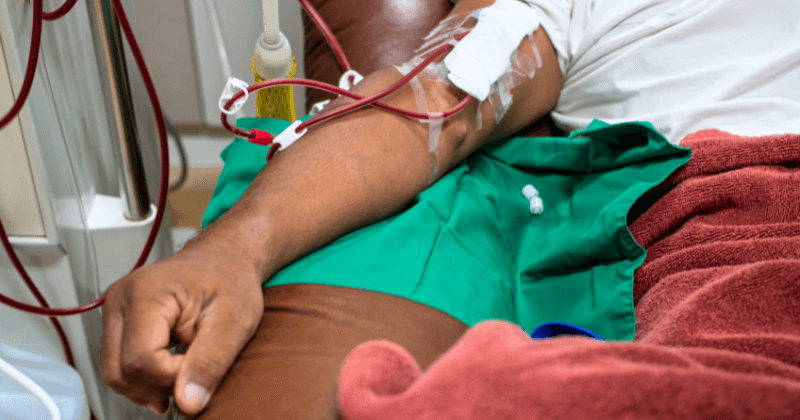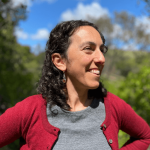How a Migrant Agricultural Worker Patient with Kidney Failure Found Care Despite the Odds

[Editor’s Note: The summer issue of Streamline is out! Streamline is MCN’s quarterly in-print clinical publication. The summer issue features articles on how health centers are reacting to increasing infrastructure and system threats from climate change; how different health centers across the country incorporate voucher systems; and on our new rotafolio about COVID and other infectious diseases. Get the full issue, read past issues, and subscribe to receive a virtual or physical copy, on our Streamline page.]
Securing access to medical care for migrant agricultural workers is complicated, difficult, and sometimes impossible, especially when it comes to expensive services such as sub-specialist care, non-emergent surgery, and cancer treatment, to name a few. Migration, especially international migration, multiplies the odds that something will go wrong, impeding or disrupting care and leading to a negative outcome. As migrant clinicians at Keystone Health in Pennsylvania, we are familiar with and become frustrated by the many things that can and often do go wrong. Yet we remain hopeful, because every once in a while, everything goes right.
Gerardo* came to our evening clinic in the fall of 2020 to seek evaluation and treatment for bilateral knee pain and fatigue. At the time, he was a 22-year-old, otherwise healthy young man with a memorable smile and an air of optimism and gratitude about him. He had arrived just weeks before in Pennsylvania on an H-2A visa for the apple harvest season. His journey became a triumph of the human spirit and proof that migrant clinicians can help make miracles happen. Here, we recount the story, in which the advocacy of a migrant health center, the conscientiousness of a local health system, the generosity of an agricultural employer, the care coordination of MCN’s Health Network, and the gift of a brother came together to make everything go right and, ultimately, to save the life of this young man.
One thing goes right:
A migrant health center enrolls the patient in a health program, provides high quality primary care and exceptional enabling services. Gerardo was seen on a Tuesday evening at our migrant clinic by Physician Assistant Grant Meckley. The Pennsylvania apple harvest was in full swing. One might have assumed that his fatigue was from toiling outdoors for 10 hours per day and his knees hurt from spending much of the day on an orchard ladder. Grant, however, suspected something more complicated. Bloodwork was done, and the next evening, we received an emergency call from a local hospital with critical lab results. Our young patient was found to have a creatinine level of 7.4 mg/dL (normal range: 0.7 - 1.3 mg/dL) with a critical calcium level of 5.8 mg/dL (normal range: 8.6 - 10.3 mg/dL), both indicating critically poor kidney function. Unable to contact the patient, who resided in migrant housing in an area with no cell phone reception, we contacted our outreach team who was finishing outreach on a nearby farm. Despite the dark, fog, and poorly marked road, they were able to locate our patient and to transport him to the local emergency room. While relieved that he would receive emergency care, we worried about what would come next. After all, he was uninsured and ineligible for most forms of assistance.
Two things go right:
A local hospital with an exceptional social worker works with the state health system to enable the patient to receive ongoing advanced care. Gerardo was admitted to the local hospital where he was found to have end-stage kidney disease of unknown cause. There, he received hemodialysis for nearly three weeks. While he was discharged with a central line for dialysis, Keystone Health providers successfully advocated for vascular surgery to place an arteriovenous fistula, which is the standard of care and safest way to receive long-term hemodialysis. A hospital social worker worked diligently with the county’s assistance office to obtain approval for Emergency Medicaid coverage for Gerardo. This social worker further advocated for placement in a local dialysis center where Gerardo could receive ongoing outpatient hemodialysis care for the next six months, the duration of Gerardo’s work visa. Despite the immediate stabilization of the patient’s condition, many questions loomed. Would Gerardo be able to continue working in the US for the full term of his H-2A visa? Would it be possible for him to access timely dialysis in his home country? Would he be able to afford it?
Three things go right:
A generous agricultural employer provides accommodations. Fortunately, Gerardo’s employer allowed him to continue to work and provided transportation for him to go to hemodialysis treatments for four hours, three times per week. He was given lighter duty at work to allow him to recover from his hospitalization and to protect his fragile medical state. These accommodations allowed Gerardo to save money that he would need upon his return to Mexico, where his family did not have insurance and where the cost of hemodialysis approaches $10,000 USD per year.
Four things go right:
MCN’s Health Network provides outstanding international care coordination. Migration could have been a deadly endeavor for a dialysis patient such as Gerardo. Treatment for end-stage kidney disease in his home country is extremely scarce, especially for the uninsured. Gerardo’s family lived in a rural town, hours away from the nearest dialysis facility. We knew that securing dialysis care for Gerardo within one to two days of his return home would be a monumental task. Thankfully, Deliana Garcia, MCN’s Chief Program Officer of International and Emerging Issues, who oversees Health Network, took on this case. Health Network is MCN’s virtual care coordination program for migrants with any ongoing health need, moving to anywhere in the world. Deliana worked with the Mexican consulate and was eventually able to locate a hemodialysis facility that was prepared to provide treatment for Gerardo within two days of his return home. Gerardo’s income from his work in Pennsylvania then helped him to receive regular care.
Five things go right:
Gerardo’s brother donates a kidney to him and two generous foundations provide financial assistance for his surgery. Chronic kidney disease is epidemic in Mexico, and care is prohibitively expensive for most. For many, end-stage kidney disease is a death sentence. Patients can often afford only infrequent hemodialysis treatments and thus live from crisis to crisis. Many more resort to peritoneal dialysis, which is somewhat less expensive but fraught with the common and often deadly complication of peritonitis, or infection within the abdominal cavity. Transplant offers the best hope for long-term survival but is often financially out of reach and depends upon finding or waiting for a suitable donor.
Luckily for Gerardo, his brother decided to donate a kidney to him. With the help of the money that he made during his H-2A visa work, along with generous donations from two charitable foundations, Gerardo received a transplant in the fall of 2022. He recently contacted Grant Meckley, PA-C, his provider and advocate from Keystone Health, to share the good news and his gratitude for all who helped to save his life.
We are often numb to stories of immigrants facing discrimination, lack of services, and basic necessities. However, despite the changing political and cultural landscape, there remain individuals and organizations steadfastly dedicated to care and hospitality for newcomers to this country, which can be a “land of opportunity” for some.
This story defies the social determinants of health. Concerned providers, caseworkers, employers, and selfless family members came together not only to save a life, but to restore quality of life in a perilous situation.
It is not just the health system and MCN’s care management that resulted in a positive outcome: Gerardo, like many migrants before him, displays the type of grit, determination, and unwavering hope that inspire us and that make migrants an essential part of our communities.
Learn more about Health Network and enrollment: https://www.migrantclinician.org/our-work/health-network.html
Read other Health Network stories: https://www.migrantclinician.org/our-work-virtual-case-management/healthnetworkhelpspeople.html
Learn more about Keystone Health Agricultural Worker Program: https://keystonehealth.org/keystoneagworkerprogram/
*Name and some identifying details have been altered or generalized to protect the patient’s identity.
- Log in to post comments
